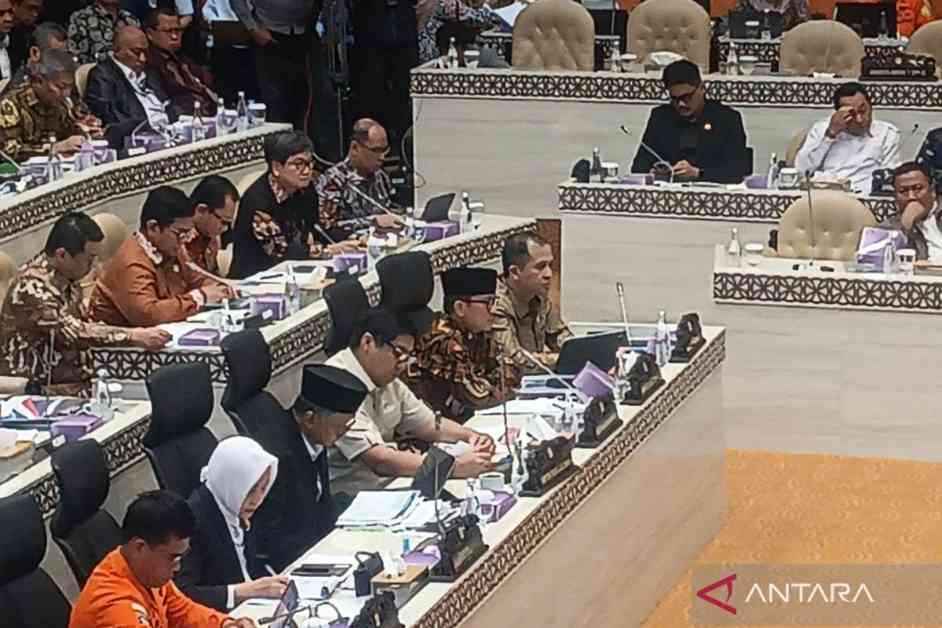The Ministry of Villages and Development of Disadvantaged Regions (PDT) is facing a significant budget cut of Rp1 trillion (US$59 million) for the year 2025 as part of a new efficiency policy. This decision was announced by Lasarus, the Chairman of Commission V of the Indonesian House of Representatives (DPR RI), during a recent meeting with various ministries. The approved budget of Rp2.1 trillion has been reduced to Rp1.1 trillion for the PDT Ministry, marking a substantial decrease in financial resources.
Commission V approved the budget cut during the meeting, signaling a unified effort to adhere to the government’s directive on budget efficiency. However, Minister Yandri Susanto did not provide specifics on which programs or items would be impacted by this policy. The details are expected to be outlined in an upcoming working meeting between the ministry and the commission.
The decision to reduce the budget comes in response to Presidential Instruction 1 of 2025, which mandates a Rp306 trillion (US$18 billion) reduction in the government budget for the 2025 State Budget and Regional Budget. This initiative aims to reallocate funds to more critical programs that directly benefit the community, such as Free Nutritious Meals (MBG), food and energy self-sufficiency, and enhancements to the health sector.
### Implications of the Budget Cut
The budget cut for the Ministry of Villages and Development of Disadvantaged Regions has raised concerns about the potential impact on rural communities and marginalized populations. With a significant reduction in financial resources, there is a possibility that essential services and programs may be affected, leading to challenges for those who rely on government support.
Expert opinions on the matter vary, with some emphasizing the importance of prioritizing essential services to ensure the well-being of vulnerable populations. According to Dr. Maria, an economist specializing in social welfare, “While budget cuts are necessary for efficiency, it is crucial to safeguard programs that directly benefit disadvantaged regions and communities. Balancing fiscal responsibility with social welfare is key to sustainable development.”
### Path Forward: Navigating Budget Constraints
As the Ministry of Villages and Development of Disadvantaged Regions navigates the budget constraints imposed by the efficiency policy, a strategic approach will be essential to minimize the impact on essential services. Collaborative efforts between the ministry, stakeholders, and local communities will be crucial in identifying priorities and ensuring that resources are allocated effectively.
Minister Yandri Susanto’s upcoming meeting with Commission V presents an opportunity to outline a clear roadmap for the allocation of reduced funds. By engaging in transparent discussions and prioritizing programs that directly benefit disadvantaged regions, the ministry can mitigate the challenges posed by the budget cut and uphold its commitment to serving vulnerable populations.
In conclusion, while the budget cut presents challenges for the Ministry of Villages and Development of Disadvantaged Regions, proactive measures and strategic planning can help mitigate the impact and ensure that essential services continue to reach those in need. By prioritizing efficiency and transparency in resource allocation, the ministry can navigate the budget constraints while upholding its mission to support marginalized communities.
This is the final draft of the article on the Ministry of Villages and Development of Disadvantaged Regions’ budget cut, highlighting the implications, expert insights, and the path forward for navigating financial constraints.






















